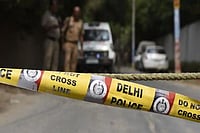Regulating banks like the NDCCB is the job of the Maharashtra State Cooperative Bank (MSCB). But officiating MD H.R. Shinde is defiant: "The auditors have checked our books and not a single transaction was found wrong. MSCB’s Subsidiary Government Ledger account is used by 300 cooperative banks to trade in government securities."
Why couldn’t the RBI prevent the gilt scam? The RBI looks into the affairs of the best lot every three years, the second tier every two years, and only the weakest every year. Most of the scam-hit banks would fall in the two-year category, enough time to pull off a quick fraud.
A complex weave of cross-representation and political ties adds to the problem. The RBI wanted MSCB to take action against the NDCCB but Sunil Kedar, its chief who enjoyed a unilateral right to take investment decisions and is now under arrest, is also on MSCB’s board. The tangle doesn’t end there. A senior member of the NCP, part of the ruling coalition in Maharashtra, had introduced Agarwal to key officials in many cooperative banks. On September 14, the NDCCB—the biggest loser at over Rs 150 crore—had anctioned Rs 40 crore to EDTV, Home Trade’s mysterious Mauritius-based holding company, without even a board meeting.
The other banks involved in the scam also have NCP ties. The Osmanabad District Central Cooperative Bank chief is Pawanraje Nimbalkar, a cousin of state energy minister and NCP man Padamsinh Patil, and brother-in-law of Ajit Pawar, Sharad Pawar’s nephew. This close connection must have emboldened Nimbalkar to sanction money to a firm—Om Jai Sai Infra Impex Pvt Ltd—started by his own sons. But then, blood is thicker than responsibility.


























